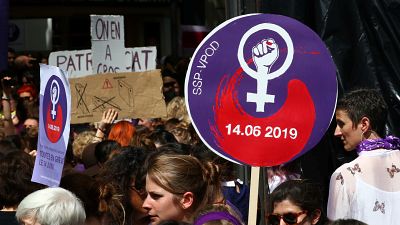From Thursday all British forms employing 250 people or more will have to publish by next April the complete gender breakdown of their workers' pay, and will no longer be able to hide the lower rates
A new British law is coming into force that could provide a significant boost for those campaigning for more gender pay equality.
Thousands of UK employers are now obliged to record the figures for their workforce’s pay, showing the different pay rates for men and women. The government says the law is fair and could add billions to the economy. The first results must be published no later than next April.
Any employer with 250 staff or more will have to take part in the scheme, some 9000 companies employing more than 15 million people.
Gender pay gap: women could shun employers over “unequal pay” https://t.co/rJsw4Yr6y9#HR#OptHR#GenderPayGap#EqualPay
— Rachel Wade FCIPD (@RachelWadeOptHR) 27 mars 2017
Currently British women earn on average 18.1% less than men doing the same work.
The hope is that by bringing the figures into the open companies will be pressured to make changes. A 2015 McKinsey report adds it is in their best interests as firms with equality and diversity are 15% more likely to have better results.
However beyond the idea of equal pay is women getting any work at all, or getting positions of real power and influence. The few that do insist they will not be the last.
#EqualPayDay is a reminder that women deserve equal pay for equal work. We must work to close the gender pay gap! https://t.co/CcwsoBXWdF
— Ivanka Trump (@IvankaTrump) 4 avril 2017
One woman who has reached the very top in her chosen field, Scottish First Minister Nicola Sturgeon, is convinced many others will follow her.
“When I took office as the first woman First Minister in Scotland, one of the things that really moved me at the time was the number of girls and women who contacted me to say how much it meant to them to see a woman in the most senior political role in the country, and that underlined for me the importance of two things: Firstly, the importance of making sure we have role models for girls to look to, but secondly underline the importance to me for women in positions of influence to genuinely lead by example,” she says.
Globally women are paid 23% less than men. Take a stand and #stoptherobbery! #GenderPayGap#UNWomenhttps://t.co/Ci7uRp5AdApic.twitter.com/9IZzaJfzqz
— Empower Women (@Empower_Women) 26 mars 2017



